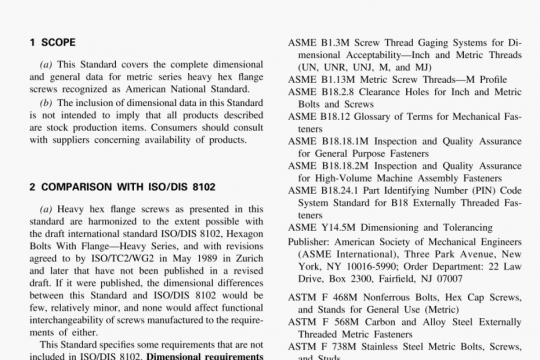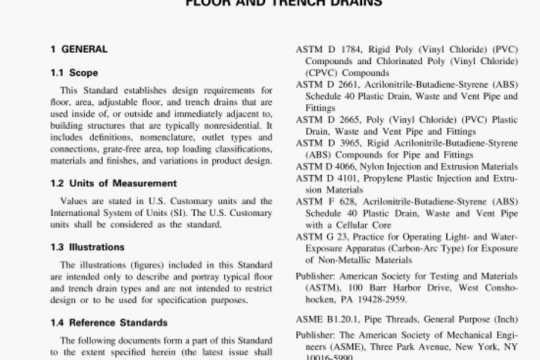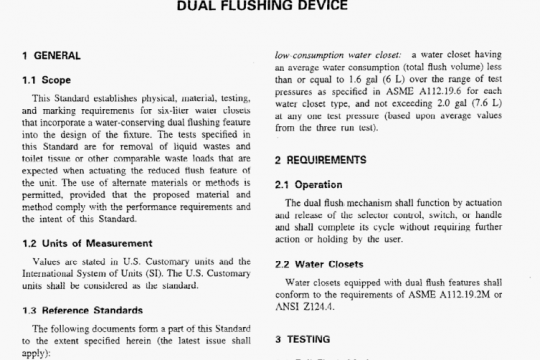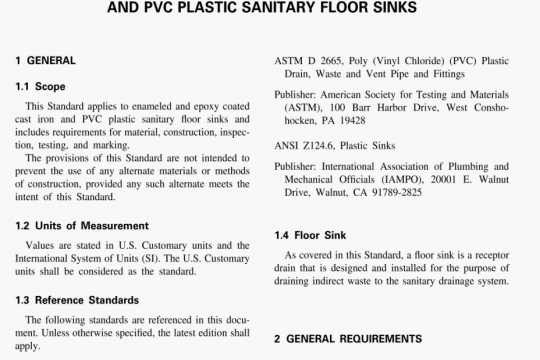ASME B31.8S pdf free download
ASME B31.8S-2016 pdf free download.Managing System Integrity of Gas Pipelines ASME Code for Pressure Piping, B31 Supplement to ASME B31.8.
Managing the integrity of a gas pipeline system is the primary goal of every pipeline system operator. Operators want to continue providing safe and reliable delivery of natural gas to thcr customers without adverse effrcts on employees, the pubhc. customers, or the environment. lnddent-free operation has been and continues to be the gas pipeline Industry’s goal. The use of this Code as a supplement to the ASME H31$ Code will allow pipehne operators to move closer to that goal.
A comprehensive, systematic, and Integrated integrity management program provides the means to improve the safety of pipeline systems. Such an integrity management program provides the information for an operator to effectively allocate resources for appropriate prevention. detection, and mitigation actIvities that will result in improved safety and a reduction in the number of lnddents
This Code describes a process that an operator ola pipeline system can use to assess and mitigate risks in order to reduce both the likelihood and consequences of Incidents. It covers both a prescriptive-based and a performance- based integrity management progrant.
The prescriptive process, when followed explicitly, will provide all the Inspection, prevention, detection, and mitigation activities necessary to produce a satisfactory integrity management program. This does not preclude conformance with the requirements of ASME B31.B. The performance-based integrity management program alternative utilizes more data and more extensive risk analyses, which enables the operator to achieve a greater degree of flexibility In order to meet or exceed the requirements of this Code specifically in the areas of inspection intervals, tools used, and mitigation techniques employed. An operator cannot proceed with the perlormance-based integrity program until adequate inspections are performed that provide the information on the pipeline condition required by the prescriptive- based program. The level of assurance of a performance-based program or an alternative international standard must meet or exceed that of a prescriptive program.
The requirements for prescriptive-based and perlormance-based integrity management programs are provided in each of the sections in this Code In addition. Nonmandatory Appendix A provides specdlc activities by threat categories that an operator shall follow in order to produce a satisfactory prescriptive integrity management program.
This Code is intended for use by individuals and teams charged with planning. Implementing, and improving a pipeline integrity management program. Typically, a team will Include managers, engineers, operating personnel, technicians, and/or specialists with specilic expertise in prevention, detection, and mitigation activities.
1.3 IntegrIty Management PrincIples
A set of prtndples Is the basis br the ieitin and spcdflc details of this Code. They are enumerated here so that the user of this Code can understand the breadth and depth to which integrity shall be an integral and continuing part of the safe operation of a pipeline system.
Functional requirements for integrity management shall be engineered into new pipeline systems from initial planning, design, material selection, and construction. Integrity management of a pipeline starts with sound design. matenal selection, and construdlon of the pipeline. Guidance for these activities is primarily provided in ASME R31.8. There are also a number of consensus standards that may be used, as well as pipeline lurlSdictIoflal safety regulations. If a new line is to become a part of an integnry management program, the functional requirements (or the line, including prevention, detection, and mitigation activities, shall be considered in order to meet this Code. Complete records of material, design. and construction for the pipeline are essential for the initiation of a good inlegnty management program
System Integrity requires commitment by all operating personnel using comprehensive, systematic, and integrated processes to safely operate and maintain pipeline systems. In order to have an effective integrity management program, the program shall address the operator’s organization, processes, and the physical system.
An Integrity management program is continuously evolving and must be flexible. An integrity management program should be customized to meet each operator’s unique conditions. The program shall be periodically evaluated and modified to accommodate changes in pipe-line operation, changes in the operating environment, and the influx of new data and information about the system. Periodic evaluation is required to ensure the program takes appropriate advantage of improved technologies and that the program utilizes the best set of prevention, detection, and mitigation activities that are available for the conditions at that time. Additionally, as the integrity management program is implemented, the effectiveness of the activities shall be reassessed and modified to ensure the continuing effectiveness of the program and all its activities.ASME B31.8S pdf download.




